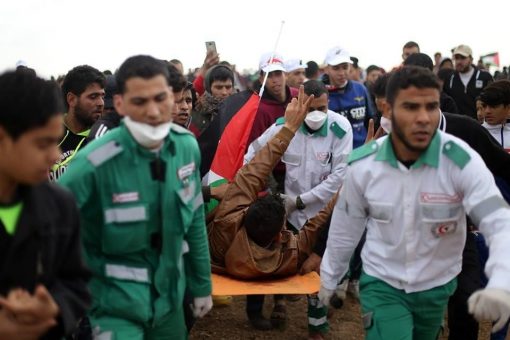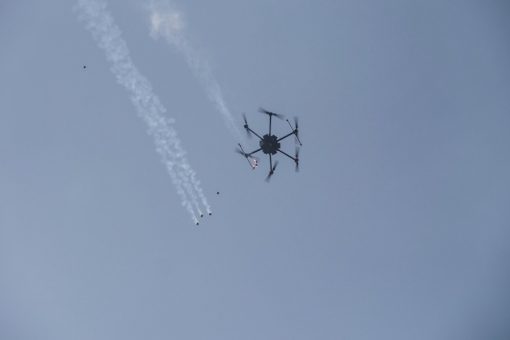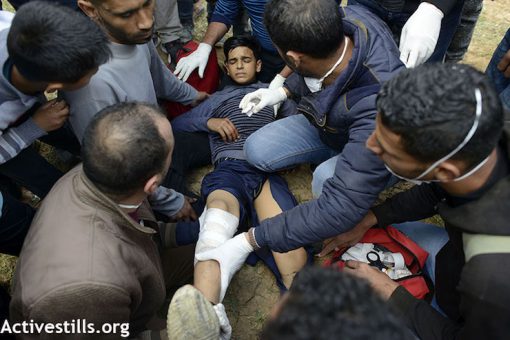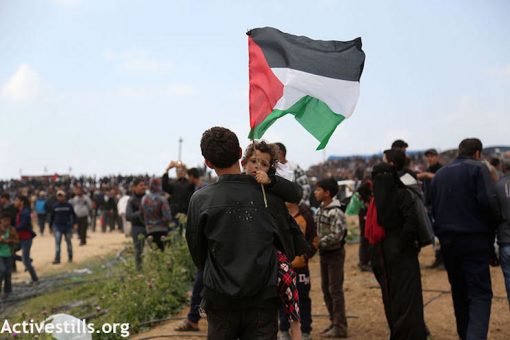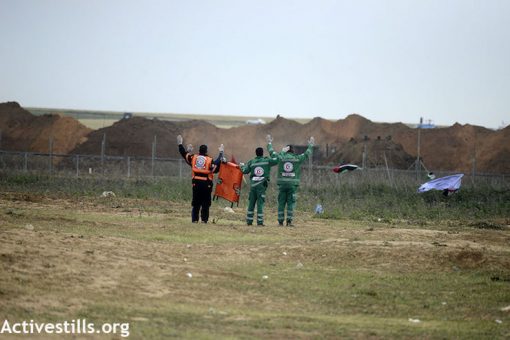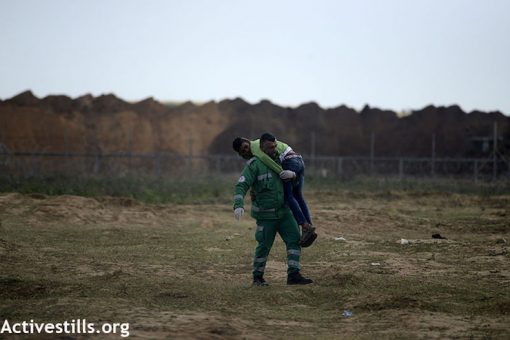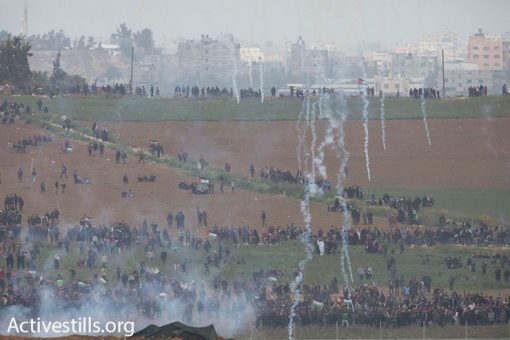It was bloody, but it had always been bloody- for Israeli military, the value for a life of Palestinian is not more than the cost of a bullet. As the wall of smoke from the tear gas fired by Israeli forces cleared, 16 Palestinians lay dead. One was blown up by an Israeli tank shell, while the others were killed by Israeli snipers. Israel also deployed aerial drones to fire tear gas shells into the wave of unarmed protesters.
Seventy years ago, following the establishment of Israel, the then Prime Minister David Ben Gurion ordered the army to shoot and kill any Palestinian who dared to cross to their land. And today, seventy years later, the Israeli Defence Force (IDF) continue the exact same policy at the Gaza's "Great Return March."
As tens of thousands of Palestinians embark on the "The Great Return March"- Israeli snipers opened fire at the protesters gathering at the Gaza-Israel border fence. The annual Land Day march is a 45-day-long series of events and protests planned to culminate on May 15 — Nakba Day. Nakba day, or the day of catastrophe, is the anniversary of the mass expulsion of Palestinians that preceded and followed the declaration of the state of Israel in 1948.
The spokesperson of the Great March of Return, Ahmad Abu Artema, estimated that 1,50,000 people had taken part in the protest, “sending a message of people power to the occupation.” According to the Palestinian Ministry of Health, in a statement, it was reported that half of the 1,400 injured were shot by Israeli snipers.
The statement further noted that Mohammed Najjar, 25, was shot in the stomach in a clash east of Jabalia in the northern Gaza Strip , while Mahmoud Muammar, 38, and Mohammed Abu Omar, 22, were both shot dead in Rafah.
Among the other victims were Ahmed Odeh, 19, Jihad Freneh, 33, Mahmoud Saadi Rahmi, 33, Abdelfattah Abdelnabi, 22, Ibrahim Abu Shaar, 20, Abdelqader al-Hawajiri, Sari Abu Odeh, Hamdan Abu Amsheh, Jihad Abu Jamous, Bader al-Sabbagh and Naji Abu Hjair. Omar Waheed Abu Samour, a farmer from Gaza, was also killed by Israeli tank shell artillery fire near Khan Younis before the protests began.
The march, one of the largest this year, is a commemoration of Palestinians killed by Israel forces during the general strike and protest against the Israeli annexation of land in Galilee region in 1976. Since then every year, the event organised by Palestinians in the occupied territories and abroad is a symbol of resistance against Israeli occupation and colonialism, and for the right of return of Palestinians.
This year's Land day march is happening in the background of United States decision to recognise Jerusalem as Israel’s capital. Despite international opposition, US President Donald Trump announced that the US embassy will be moved from Tel Aviv to the holy city around the Nakba day. In December last year, the United Nations General Assembly (UNGA) in an emergency session voted, near unanimously, against the Trump’s Jerusalem move and declared it as in violation of international law. Eight Palestinians inside Gaza were killed protesting against the Trump’s decision.
Before the beginning of the non-violent march, Israeli military portrayed the march as provocative and deployed more than 100 snipers and infantry brigade along the borders, with permissions to open fire. Threatening the bus owners for transporting the protesters, COGAT Gen. Yoav Mordechai told Al-Hura TV , said: “From my point of view….if bus companies you own take some of the protesters and bring them to the border, you and your families will be held personally responsible.”
Ayman Odeh, chairman of the Joint List, denounced the army’s use of live ammunition against unarmed protesters and said :
“On the Jewish festival of freedom of all days, the residents of the world’s largest prison are asking to live. Men, women, and children, residents of Gaza, are marching to demand their freedom, facing off against indifference and cruelty. From Israel’s perspective, there is no legitimate form of Palestinian protest. Even such a model of non-violent popular struggle is met with armed soldiers who do not hesitate to fire at unarmed demonstrators.”
As the news of Palestinians killed on the first day of 45 days protests started pouring in, the UN Secretary-General Antonio Guterres called for an "independent and transparent investigation" into the Gaza killings.

